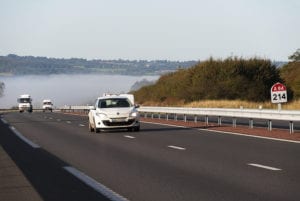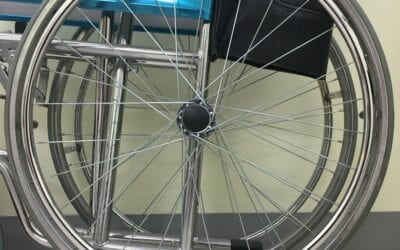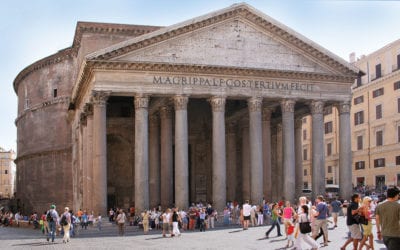COVID-19 pandemic travel scams and swindles will always be problems for travelers
 Six pandemic travel scams are normal during Labor Day travel. Americans are tired of lock-downs and self-quarantine. They are dreaming about and planning future vacations. I am. As we scope out journeys, we must be cognizant of pandemic travel scams which over the COVID-19 year have cost vacationers billions of dollars.
Six pandemic travel scams are normal during Labor Day travel. Americans are tired of lock-downs and self-quarantine. They are dreaming about and planning future vacations. I am. As we scope out journeys, we must be cognizant of pandemic travel scams which over the COVID-19 year have cost vacationers billions of dollars.
Here’s a list of the five most frequently occurring scams about which my readers have written to me, plus a new pandemic travel scam that’s COVID-19 specific.
Pandemic travel scams surround us. If someone can take advantage of the pandemic they will
The “Sorry, my meter is broken,” hoax —
You get in a cab and the driver claims the meter is broken, then quotes you a good fare, but when you get to your destination demands a higher sum and threatens to call the police if you don’t pay immediately. A variation is the driver starts as soon as you tell him where you’re going, then tells you the meter is broken and quotes an outrageous fare.
To avoid it, don’t hail cabs from the street. Ask a reputable hotel or restaurant to call a licensed cab or hire one from an official location. Before you leave, know the general cost of the ride and your destination’s exact address. Don’t take a cab with a broken meter. Use a smartphone map app to keep the driver honest. If your instructions aren’t being followed or something doesn’t seem right, terminate the ride and walk away. You can also use a ride-hailing service like Uber or Lyft which sets the cost of the trip in advance.
The “Let me help you to clean off the bird dropping” diversion —
This starts with someone on the street squirting you with some kind of liquid that looks like a bird dropping or another stain. The squirter might point out the spot and offer to “help.” It’s a diversion. While you’re paying attention to the stain, an accomplice pickpockets you. Alternatives include someone dropping their wallet or an elderly person falling in front of you to gain your attention.
To avoid it, take one credit card and minimal cash when walking on the street. Leave other cards and the rest of your cash in the room safe, along with your passport, unless you must carry it when traveling internationally. Carry credit cards, important IDs, and passport in a neck pouch under your shirt. Keep cash for the day and wallet in separate front pockets.
In addition, while traveling, never play good Samaritan nor permit anyone to touch you.
Getting charged for faked damage to rental cars after you’ve been home for weeks are pandemic travel swindles used for years
The fake damage to your rental vehicle scam —
This scam happens — even occasionally when renting from major companies — due to unscrupulous employees and franchises. You get a credit card charge for vehicle damage that you know nothing about. Generally, the damage is fake, but it’s hard to fight because you’re home when the report is issued.
To avoid it, always rent vehicles from reputable companies. For extra protection, take photos of the vehicle before you leave the company’s premises, and immediately upon returning it to them. If at all possible, if there is any damage before taking the vehicle, have an employee note it. When you return the vehicle, have an employee note it’s clean. Always get a copy of the damage report before leaving.
READ ALSO: 8 Common travel scams and how to avoid them
Getting stuck in counterfeit currency swindles has been a serious problem for international travelers, especially when we’re not familiar with the local currency.

This swindle can occur in many ways. Currency exchange booths can give you counterfeit or obsolete money. Cab drivers, restaurants or shops may claim you paid them with fake bills after switching them for ones you gave them.
To avoid it, minimize using cash. Pay by credit or debit card. Exchange money only at legitimate locations such as your hotel or banks. Avoid currency exchanges as much as possible. Only get cash, as needed, from ATMs. Avoid independent ATMs. Use ATMs in your hotel, if you can’t use one in a bank to avoid ATM skimmers.
The front desk call scam —
In this scam you get a call, typically in the middle of the night when your senses are foggy, from a person purporting to be at the hotel’s front desk, asking you to verify your credit card. I’ve gotten this call twice over the years. Of course, it’s not the hotel. It’s an imposter calling.
To avoid it, never give out personal identification or financial information on the phone to someone who calls you. You can’t verify their identity, even with caller ID.
The inexpensive travel insurance policy swindles that cover COVID-19 losses
The fake COVID-19 travel insurance policy —
We all want to protect ourselves from financial loss while traveling during the COVID-19 pandemic. Since travel at this time is unpredictable, it’s natural to purchase insurance to reduce risk. There are scammers ready to sell bargain policies that cover losses due to the pandemic. Often they are far cheaper when compared to policies from well-known travel insurance companies. That should raise a red flag for you.
To avoid it, shop for policies only from well-known, licensed companies. If the deal seems to be too inexpensive to be true, you can safely assume it is.
Travel during the COVID-19 pandemic is not a time to drop your guard. Always be aware of potential pandemic travel scams to avoid them.
ALSO ON TRAVELERS UNITED: After the pandemic, what does a travel insurance policy really insure?
(Image: Rental Car, Caen, Normandy, France: Copyright © 2009 NSL Photography, All Rights Reserved.)
After many years working in corporate America as a chemical engineer, executive and eventually CFO of a multinational manufacturer, Ned founded a tech consulting company and later restarted NSL Photography, his photography business. Before entering the corporate world, Ned worked as a Public Health Engineer for the Philadelphia Department of Public Health. As a well known corporate, travel and wildlife photographer, Ned travels the world writing about travel and photography, as well as running photography workshops, seminars and photowalks. Visit Ned’s Photography Blog and Galleries.



